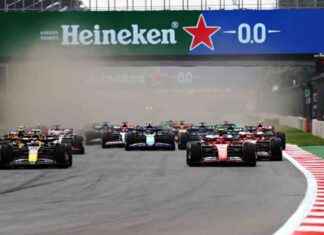MADRID, 30 Jun. (EUROPA PRESS) –
Activity in the Chinese economy expanded again in June for the sixth consecutive month, according to data from the Purchasing Managers Composite Index (PMI) published by the National Statistical Office, which has fallen to 52.3 points from 52. .9 of the previous month, which represents the lowest rate of growth since December 2022.
Specifically, the Chinese industry PMI index continued to deteriorate in June for the third consecutive month, standing at 49 points, compared to 48.8 the previous month, while the non-manufacturing PMI moderated to 53.2 points. from 54.5 in May, its slowest rate of expansion since December.
In the case of the activity of the Chinese factories, in the month of June the data for new orders was 48.6 points, compared to 48.3 in May, which indicates that the demand in the manufacturing market continued to fall, while that the employment index has worsened two tenths, up to 48.2 points.
In turn, in the non-manufacturing sector the index of new orders was 49.5 points, in line with the previous month, which indicates a decrease in demand from the non-manufacturing market, while employment increased its rate of deterioration , with a reading of 46.8 points, compared to 48.4 in May.
“PMI surveys suggest China’s reopening recovery continued to lose momentum in June,” said Julian Evans-Pritchard, senior China analyst at Capital Economics, noting that in addition to the contraction in the manufacturing sector, growth of the service sector “has now fallen below pre-pandemic levels”.
Also, the official composite PMI fell to 52.3, which, outside of the pandemic, is its lowest level on record, suggesting that the labor market “seems to be weakening again.”
Thus, while the Chinese economy should still progress for the rest of the year, provided more political support is received, the expert believes that the gains are likely to be modest, with GDP growth forecast at 1.2 % quarterly between April and June.
“Looking ahead, policy support will be key to avoid a further slowdown in growth,” says Evans-Pritchard, who, unless concrete support is implemented soon, the recent drop in demand risks reinforce itself.







